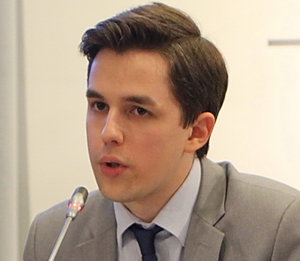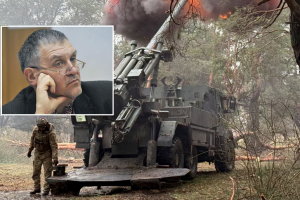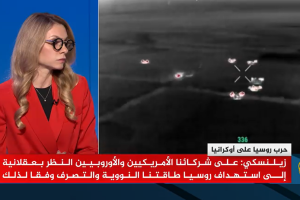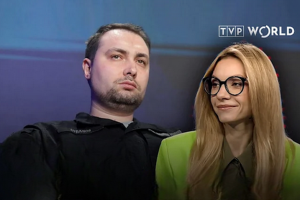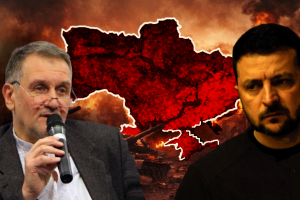Visit of foreign minister of Ukraine to Washington: first conclusioins
Ruslan Kermach Political analyst, Democratic Initiatives Foundation | Last week in Washington the official meeting of the Foreign Minister of Ukraine Pavlo Klimkin and U.S. Vice President Michael Pence was held. In accordance with official information of the White House Mr.Penсe noted the “categorical support of the sovereignty and territorial integrity of Ukraine” and underscored that the “Minsk agreements remain the most realistic path towards achieving peace”. After this meeting, Minister Klimkin was also welcomed at the White House by U.S. President Donald Trump, who during his conversation with the Ukrainian diplomat confirmed the U.S. support of Ukraine and expressed his desire to cooperate with his Ukrainian partners regarding an amicable resolution of the Donbas conflict. The Ukrainian Ministry of Foreign Affairs called the talks held in the United States “a huge success of Ukrainian diplomacy”. |
Foreign Minister of Ukraine Pavlo Klimkin became the first Ukrainian high-standing official who managed to personally meet with the new U.S. President Donald Trump face-to-face in the Oval Office of the White House, which gives this diplomatic visit particular symbolic meaning.
For that matter, it is noteworthy that the meeting of the Ukrainian minister in the White House was held literally a few hours after the meeting of the U.S. president with the head of the Russian Ministry of Foreign Affairs Sergei Lavrov. Such a consistency of meetings in and of itself serves as an eloquent diplomatic gesture, which, among other things, could have been dictated by the domestic political motivations of the White House. On the backdrop of the growing suspicions in the U.S. of the possible ties of the inner circle of President Trump with Russia, a productive meeting with the head of Ukraine’s Ministry of Foreign Affairs should have calmed down that part of the U.S. establishment that cautiously perceived the visit of Russian minister Lavrov so soon after the scandalous dismissal of Director of the FBI James Comey from his position by the U.S. president.
Purely in the diplomatic context the holding of the meeting with the Russian and Ukrainian Foreign ministers on the same day was clearly arranged to demonstrate first and foremost the balanced nature of the approach of Washington and the desire to hear out the positions of both sides one way or another engaged in the conflict in Ukraine.
Besides the purely symbolic aspects, based on the synopses of the talks of the Ukrainian high-standing official in Washington some preliminary conclusions can be drawn.
First and foremost, it is worth noting that the key messages of the U.S President and Vice President voiced during the meeting in the White House give grounds to speak about the general formation of the Washington’s position regarding the issues of the top-priority for Ukraine at the current stage. Among those issues first and foremost are the support of the territorial integrity of Ukraine in conditions of Russian military aggression and Russia’s occupation of part of the territory of Ukraine, the acknowledgement of Russia’s responsibility in the context of the implementation of the Minsk agreements and the readiness of the United States to further support Ukraine in the context of peaceful conflict settlement in the Donbas.
Formation of the position of the current U.S. administration regarding the aforementioned issues is beyond doubt an important guarantor of effectively toing the line of Western diplomatic pressure on Moscow in the event that the latter continues its aggression and brazen disregard of the provisions set forth in the Minsk agreements. Equally important is this position in the context of extension of the sanctions against Russia, which U.S. Secretary of State Rex Tillerson says “will remain in place until Moscow reverses the actions that triggered them”.
The sufficiently high level of understanding between the Ukrainian and American sides also creates a favorable backdrop for the preparation of a meeting at the highest level between the presidents of the U.S. and Ukraine in the future. No less important is that the position of the U.S. administration regarding the Ukrainian issue was formed earlier than the personal meeting between Donald Trump and Russian President Vladimir Putin planned for G-20 Summit (July 2017) will be held. And although the arrangement of tighter international cooperation between Washington and Moscow regarding separate priority issues cannot be ruled out, the possibilities of concluding the so-called “Big Deal” behind Ukraine’s back seem considerably limited given that now the White House once again publicly articulated its position regarding the Ukrainian issue.
The talks that Ukraine’s Minister of Foreign Affairs Pavlo Klimkin held in the White House are beyond a doubt a critically important positive result of the work of Ukraine’s diplomatic corps on the American direction, which forms the foundation for deepening bilateral communication and further cooperation with the United States according to the priority issues for both countries.

